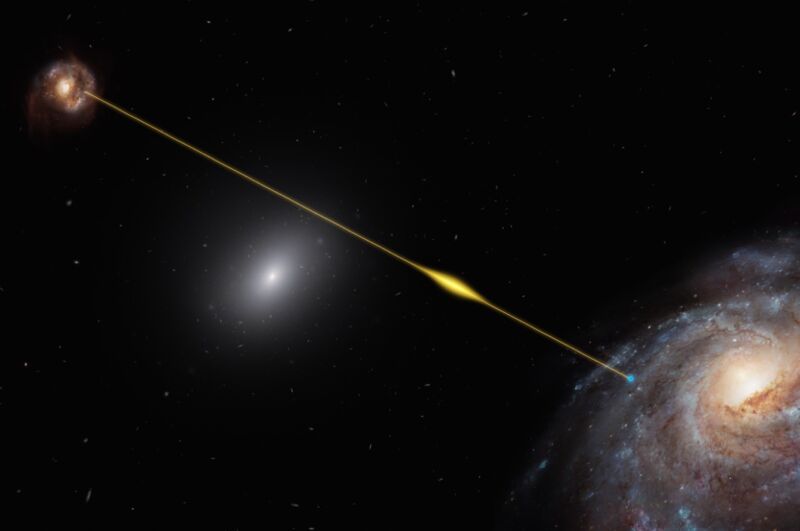Mysterious fast radio bursts look a lot like earthquakes, study finds

Enlarge / Artist's impression of a fast radio burst (FRB) traveling through space and reaching Earth. (credit: ESO/M. Kornmesser/CC BY 4.0)
Astronomers have been puzzling over the mysterious origins of fast radio bursts (FRBs) since they were first detected in 2007. Now scientists at the University of Tokyo have come up with new evidence that at least some FRBs may be caused by so-called "starquakes" on the surfaces of neutron stars, according to a new paper published in the Monthly Notices of the Royal Astronomical Society.
As Ars Science Editor John Timmer reported previously, FRBs involve a sudden blast of radio-frequency radiation that lasts just a few microseconds. Astronomers have cataloged hundreds of them; some come from sources that repeatedly emit FRBs, while others seem to burst once and go silent. You can produce this sort of sudden surge of energy by destroying something. But the existence of repeating sources suggests that at least some of them are produced by an object that survives the event. That has led to a focus on compact objects, like neutron stars and black holes-especially a class of neutron stars called magnetars-as likely sources.
Magnetars are an extreme form of a neutron star, a type of body that is already notable for being extreme. They are the collapsed core of a massive star, so dense that atoms get squeezed out of existence, leaving a swirling mass of neutrons and protons. That mass is roughly equal to the Sun's but compressed into a sphere with a radius of about 10 kilometers. Neutron stars are best known for powering pulsars, rapidly repeating bursts of radiation driven by the fact that these massive objects can complete a rotation in a handful of milliseconds.